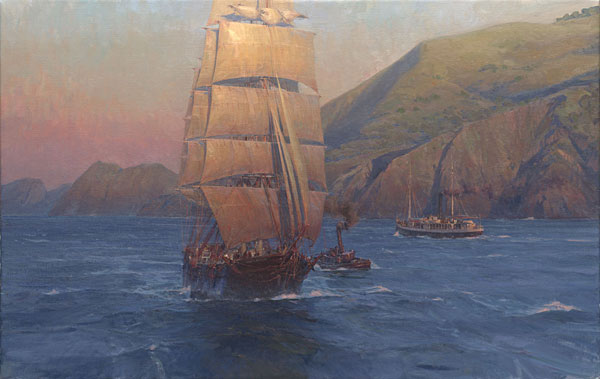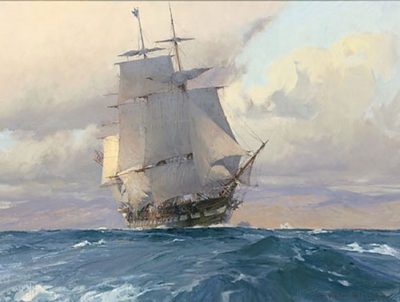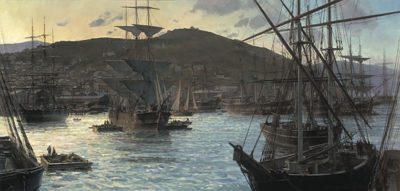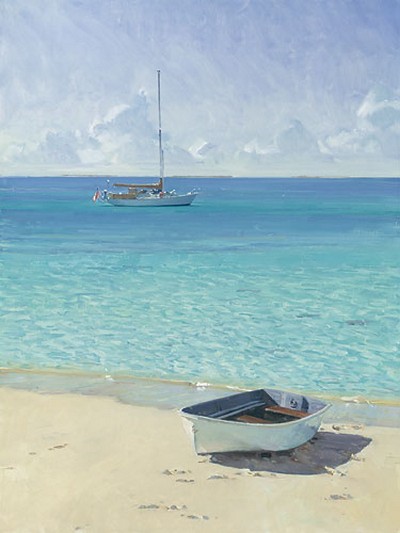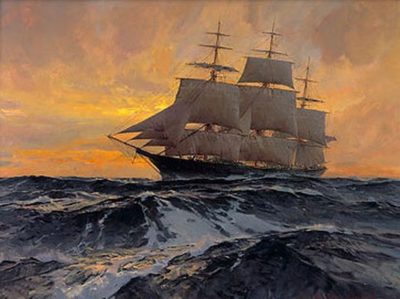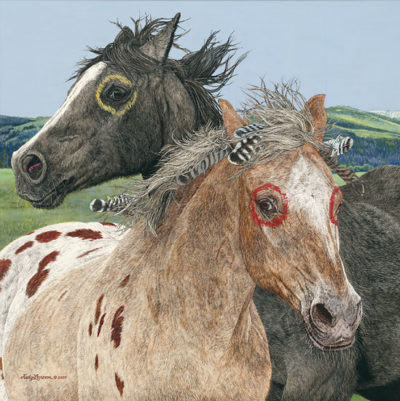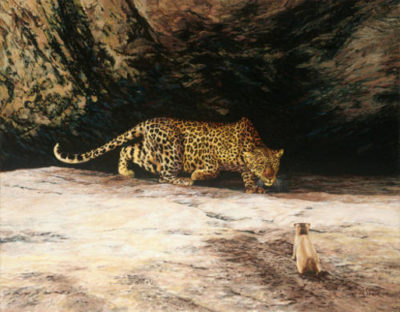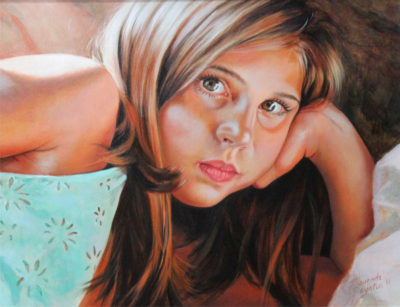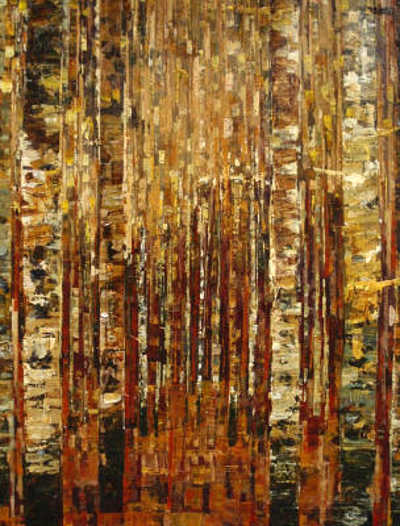Sunrise in the Golden Gate: Down Easter “Benjamin F. Packard”
Artwork Description
Winner of the 2010 Prix De West Purchase Award!
The top honor at the Prix de West art exhibition and sale, hosted by the National Cowboy and Heritage Museum is the Prix de West Purchase Award, the work chosen to be purchased for the Museum’s permanent collection. It is one of the most coveted prizes in the field today. Christopher Blossom’s “Sunrise in the Golden Gate; Down Easter ‘Benjamin F. Packard'” was selected for the award from a field of 110 of the country’s finest artists who presented 346 paintings at this year’s show. Past winners of this award include Howard Terpning®, Morgan Weistling, Curt Walters, Tom Lovell, Wilson Hurley, Tucker Smith and James Reynolds.
A Greenwich Workshop artist since 1983, Chris is the most highly regarded and collected maritime artist painting today. A work of Christopher Blossom’s fine art is considered the height of craftsmanship in maritime art. In his 21 years of participation in the Prix De West, Blossom has three times been chosen by his fellow artists for the Robert Lougheed Award. His bold design and impeccable rendering capture the mood and mystical experience of men at sea.
Each work is also the work of an ardent historian, as is apparent in Blossom’s telling of the story behind the painting: As the sun just peeks over the mountains to the east, the ship “Benjamin F. Packard” passes through the Golden Gate and into San Francisco Bay.
Built in Maine in 1883, the “Benjamin F. Packard” was a type of vessel known as a Down Easter. Named for their place of building, down east where sufficient stands of timber still stood near the shipyards, these last of the wooden square rigged ships were larger with more cargo capacity than their predecessors, the clipper ships. They were able to carry sail longer thanks to their rugged construction and were capable of very credible passage times. These attributes made them a commercially viable option particularly on the long and rough Cape Horn passages until they were supplanted by steam around the end of the century.
The “Benjamin F. Packard” had a long and varied life and was a regular visitor to San Francisco, having been built for the trade around Cape Horn to the west coast. Her first few years, the “Packard” was under the management of her builders, Goss, Sawyer & Packard of Bath Maine. In 1887, the managing ownership was purchased by Arthur Sewall & Company also of Bath, under whose management she remained for the rest of her Cape Horn career. In 1909, she was sold to the Northwest Fisheries Co. of Port Townsend, Washington for the salmon packing business. With this change she sailed north each year for the season until 1924 when she was sold and made the voyage back to New York once again, this time under tow with a load of lumber. After her return to the east coast, with several changes of ownership and continued deterioration, she eventually became one of the centerpieces at the amusement park in Rye, NY, Playland, being used, ignominiously, as a ‘pirate ship’ for years. In 1939, she was dismantled and towed to the dumping grounds of Eaton’s Neck, NY and sunk. Fortunately, prior to this, her main cabin was dismantled and saved and is now on exhibit at Mystic Seaport Museum in Connecticut.

